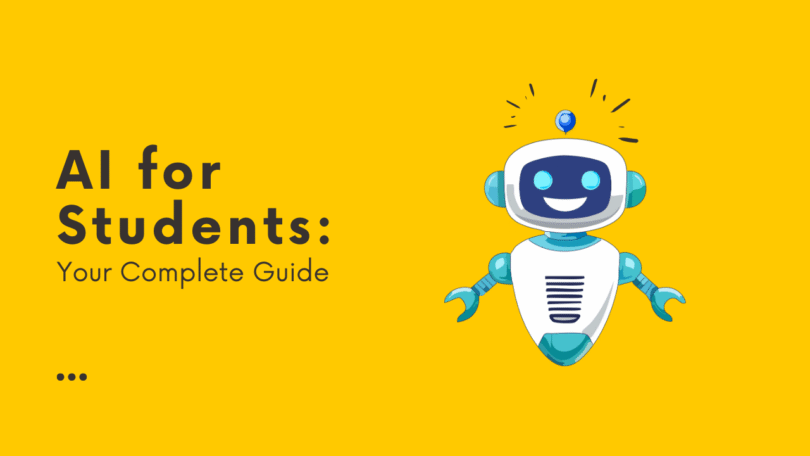The rise of artificial intelligence has reshaped industries and is now transforming education. Far from being a tool solely for cutting corners, AI can be a powerful and ethical assistant for students who know how to use it effectively. From personalizing your study sessions to streamlining research, AI tools can help you work smarter, not harder, and ultimately achieve better grades. This guide will walk you through the key ways students can leverage AI responsibly for academic success.
1. Your Personalized AI Tutor and Study Buddy
One of the most valuable uses of AI is its ability to provide personalized, 24/7 academic support.
- Clarify Complex Concepts: If you’re stuck on a difficult topic in a textbook or lecture, an AI chatbot like ChatGPT or Gemini can act as a virtual tutor. Instead of just giving you the answer, you can ask it to “explain this concept to me as if I were a middle school student,” or “provide three examples of this principle in action.” This tailored approach helps you understand the material on your own terms.
- Generate Practice Questions and Quizzes: Active recall is a cornerstone of effective studying. AI can help you create custom quizzes and flashcards on any subject. Simply provide the notes or textbook chapter, and the AI can generate practice questions to test your knowledge and help you identify areas where you need more review.
- Break Down Your Study Schedule: AI can help you create a personalized study plan by breaking down large workloads into smaller, manageable tasks. You can prompt an AI to “create a 7-day study schedule for my biology final, covering these 5 topics,” and it can generate a structured timetable that reduces overwhelm and improves time management.
2. AI for Writing and Research
AI tools can significantly enhance your writing and research process, but they must be used as a supplement, not a replacement, for your own work.
- Refine and Edit Your Writing: Tools like Grammarly and QuillBot use AI to check grammar, spelling, and style, and can even help you rephrase sentences to improve clarity and flow. They act as a writing coach, providing real-time feedback that helps you become a better writer over time.
- Summarize and Analyze Documents: Need to quickly understand a long research paper or a dense textbook chapter? AI tools like ChatPDF or built-in summarization features in AI assistants can provide a quick summary of key points, saving you hours of reading. This is especially useful for literature reviews or when you’re exploring new topics.
- Brainstorm Ideas and Create Outlines: Staring at a blank page is a common hurdle. You can use AI to brainstorm ideas for an essay or to create a structured outline. This helps you overcome writer’s block and provides a solid framework for you to build upon with your own unique arguments and voice.
3. Note-Taking and Organization with AI
AI can help you capture and organize information more efficiently, making your study materials more accessible.
- Transcribe and Summarize Lectures: Apps like Otter.ai can transcribe audio recordings of lectures, turning spoken words into text. You can then use an AI to summarize the transcript, highlighting the most important points. This allows you to focus on listening and understanding in class, rather than frantically trying to write everything down.
- Organize Your Notes: Platforms like Notion use AI to help you organize notes, track projects, and connect related ideas. You can use their AI features to generate summaries, find key themes, or even turn a bulleted list into a paragraph.
4. The Ethical Compass: A Guide to Responsible AI Use
While AI offers immense benefits, its use in education comes with significant ethical considerations. Students must use these tools responsibly to avoid academic misconduct.
- Be a Co-Pilot, Not a Passenger: Always use AI as an assistant to aid your work, not to do it for you. The goal is to learn and grow, and simply copying AI-generated text undermines that process.
- Fact-Check Everything: AI models can sometimes “hallucinate” or provide inaccurate information. Always cross-reference any facts, statistics, or sources you get from an AI with reputable sources.
- Check Your School’s Policy: Universities and schools have varying policies on the use of AI. Be sure to read your syllabus and academic honesty policy to understand what is and isn’t permitted.
- Cite Your Sources (Even AI): If you use an AI to help you find information or generate an outline, it’s good practice to be transparent about it. Some professors may require you to cite the AI tool in your work.
By treating AI as a powerful tool for learning and productivity—and not as a shortcut—you can harness its potential to enhance your education and prepare for a future where these technologies are a standard part of professional life.







